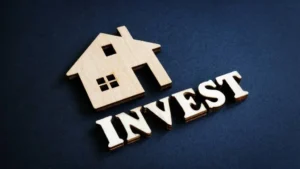Investing in real estate is an ideal undertaking that most can describe as involving low risks and high rewards. Compared to shares or other goods that vary in value quite often due to differing economic factors, real estate appreciates and has realistic value over the years. Investing in real estate can be great for financing since it will make a living through acquiring rent or watching the developed asset appreciate long-term. Such a portfolio, however, ought to be structured wisely because real estate has a lot of complexities as a market. A properly diversified portfolio not only protects against risks of losses during a recession but also yields positive returns in the foreseeable future.
Knowing What Motivates Your Investment:
It is very important to give yourself a purpose to assist you in making the necessary decisions when seeking to invest in real estate. Most importantly, what is your plan with the investment? Are you a buy-and-hold kind of investor where you earn a rental income? Do you want to buy low and sell even lower, or just want to have something different in your investment portfolio?
Every goal that you have established will guide you through almost every decision that you are going to make. Don’t forget to assess your risk exposure as well. Real estate investments come in low, medium, and high-risk categories. One can invest in a nice stable house as a stable asset, and one can undertake a high-risk speculative real estate investment. Understanding personal financial status, financial aptitude, and time frame helps in constructing a portfolio that fits personal preferences quite correctly.
Researching the Real Estate Market:
The real estate market portrays a picture of clarity in diversity. To maximize earnings, one needs to identify and tap the market niches corresponding to their objectives and feasible high-demand openings in the market. For starters, try to get an understanding of the market by exploring its key dynamics, such as the concentration of urbanization, demographics, and construction activities in the cities.
In addition, each segment of the real estate market, namely, residential and retail spaces, holiday homes, and multiplex units, has its attractiveness and a set of risks. To discover neighborhoods or property types that demonstrate good growth potential and attract tenants, there is no alternative to targeted research and proper due diligence. The most important tool that any investor can arm himself with is education, which is crucial in facilitating informed investment choices.
The Role of Financial Analysis:
Investors in real estate who successfully build their asset base always highlight financial analysis. Cash flow, cap rate, ROI, or return on investment, and gross rental yield are among the critical metrics in the assessment of property profitability. A proper financial assessment assists you in mitigating the over-exaggeration of income potential and the ‘underappreciation’ of maintenance costs. Financial calculators, real estate investment tools, or even financial planners can make the math easier and clear the path for smart decisions. By assessing all the aspects of a deal, including anticipated rents and the most unexpected costs, you lessen your risks and increase the likelihood that each investment will yield the expected returns.
Linking Property Buying Strategies with Financing Options:
In real estate investment, securing financing is typically the focal point. It doesn’t matter if you are an absolute beginner or if you’re adding to your portfolio for the umpteenth time; it’s always useful to know all the options available for financing. Mortgages and residential loans, private funding, hard money loans, and saying yes to all partnerships are some of the resources available to raise funds.
Be aware of loan rates, durations, and terms whenever looking for the most appropriate financing schemes. The ability to agree on acceptable terms is no less than important. Providing cash almost instantaneously, buying a property from distressed asset lists, or directing marketing through realtors can be very effective strategies and tools when it comes to making attractive deals.
Managing and Growing Your Portfolio:
The investment does not end with buying properties; it starts when you have to perform effective portfolio management to make sure the properties remain productive and profitable. Concentrate on raising a level of service to your present and potential tenants so that they do not have to stay unsatisfied for long. Managing costs such as maintenance, tax, or insurance can also protect your profit margins.
Hiring professional property managers saves you the hassle and also improves results, especially when managing properties at different locations. As you expand your portfolio, consider reinvesting your cash flow, employing equity developed from other owned properties, or practicing diversification into other branches of real estate. All these actions are subject to the most important one in a business, which is maintaining and formulating an appropriate portfolio—that is how to walk in the right direction of achieving success, indeed a long-term one.
The Future of Real Estate Investment:
The real estate sector is never a constant and is always changing due to economic changes, advancements in technology, or even the movement of people. Keeping pace with trends is very important in business. For instance, there is a growing demand for smart and greenhouses for young people co-living as well as short-term renters looking for similar units. There is growth in demand for suburban and semi-urban markets due to the possibility of working remotely. The importance of keeping abreast of these changes is that it enables one’s approach to be revised and directs the focus toward the future when investment has to be guaranteed to pay back.
FAQs:
1. How much money do I need to start a real estate portfolio?
The starters’ costs may differ depending on the market and type of property, but one can still start with as little as $10,000 by any other method that employs real estate crowdfunding or house hacking.
2. How soon can I expect to make profits on my properties?
This depends on the investment type. Concerning the rental properties, a monthly income is generated and can be considered immediate, while value appreciation takes longer and is determined by current market positions.
3. Is it possible to self-manage a portfolio?
Indeed so, although it’s tedious work. If one holds a number of properties, the use of property managers or financial advisors may be a more viable alternative.
4. Which property is best for a beginner investor?
Single-family rental houses are often cited to be the best for a first-time investor due to simplicity and reasonable demand.
5. Should I be worried about risks when investing in real estate?
Like any other investment, there are risks associated with real estate, including changing markets and properties getting damaged or empty; these are some examples. However, with careful analysis and measures put in place, the risks are much lower and the chances of success are higher.




